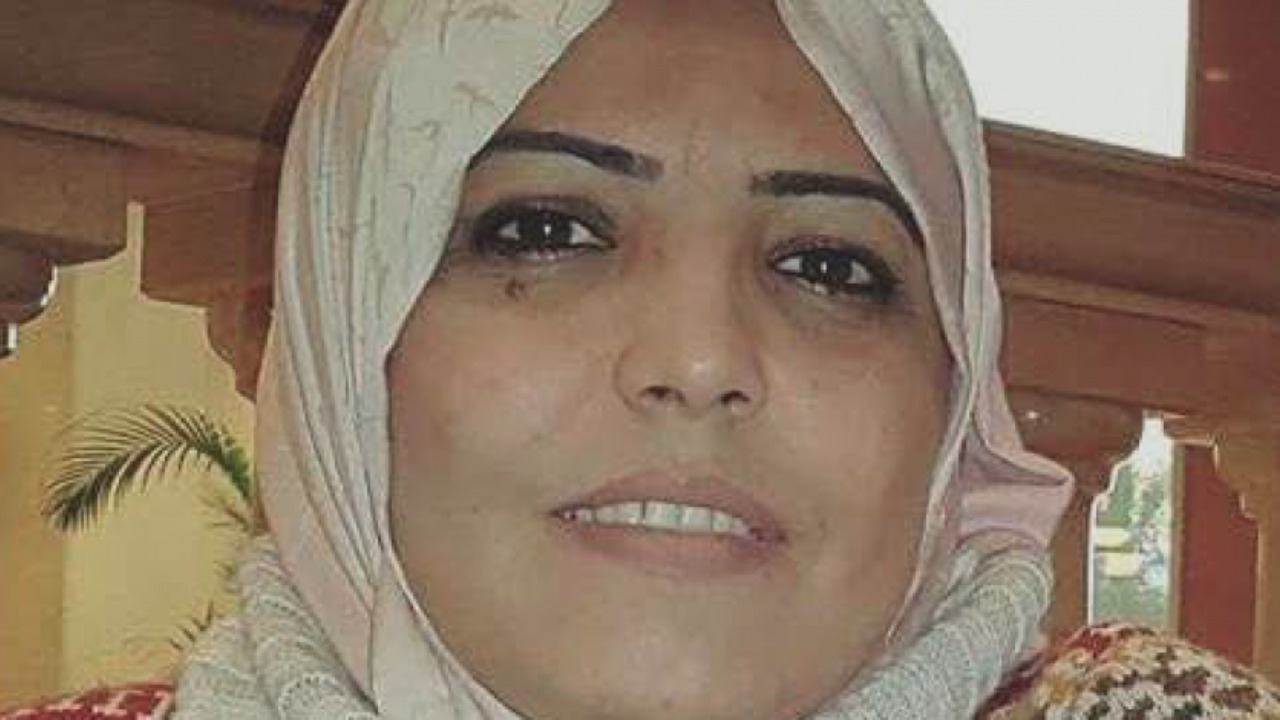Baghdad court issues arrest warrant, after journalist’s report Khamenei ordered ceasefire in attacks on US
Baghdad court issues arrest warrant, after journalist’s report Khamenei ordered ceasefire in attacks on US.

ERBIL (Kurdistan 24) - On Thursday, a court in Baghdad issued an arrest warrant for an Iraqi journalist who had reported that Iran’s Supreme Leader, Ayatollah Ali Khamenei, had been behind the recent decision by extremist militias within the Hashd al-Shaabi (Popular Mobilization Forces) to stop their attacks on US and Coalition targets in Iraq.
On Saturday, media watchdogs, including Reporters Without Borders (RSF) and the Committee to Protect Journalists (CPJ), issued statements protesting the warrant as a serious violation of basic press freedoms.
Background to Arrest Warrant
Suadad al-Salhy, a Baghdad-based reporter for Middle East Eye who has previously written for both Reuters and The New York Times, reported on Thursday that Khamenei was behind the Oct. 11 declaration by Iranian-backed elements of the Hashd al-Shaabi in which they announced a 40-day ceasefire in their attacks on US and Coalition targets.
The militias said that their ceasefire was conditional on the Iraqi government producing a timetable for a withdrawal of those forces.
But no relevant party—US, Coalition, or Iraqi government—has said anything about such a withdrawal, and the militias’ statement is probably best understood as a face-saving gesture.
Rather, it seems strong US threats, made by Secretary of State Mike Pompeo in late September in separate phone conversations with Iraqi President Barham Salih and Prime Minister Mustafa al-Kadhimi, are what produced the militias’ stand-down.
In particular, Pompeo told them that if the Iraqi government did not stop the militia attacks, the US would launch an intense attack against them, after it closed the US embassy in Baghdad (thereby denying them a target for retaliation.)
Read More: Baghdad, both Iraqis and foreigners, roiled by US threats to close its embassy
Writing on October 8, Salhy provided even more detail. “The United States has drawn up a list of 80 sites in Iraq linked to Iranian-backed groups that it plans to target, if it follows through with a threat to close its embassy in Baghdad, Middle East Eye has learned.”
“The sites include secret headquarters and shelters used by Hadi al-Amiri and Qais Khazali, the respective leaders of the Badr Organization and Asa’ib Ahl al-Haq (AAH), as well as sites associated with Kataeb Hezbollah (KH),” her report continued.
Arrest Warrant Against Salhy
“The order for Iraqi armed factions to halt their attacks on US interests,” Salhy added last week, “came directly from Iranian Supreme Leader Ali Khamenei,” as “Middle East Eye can reveal.”
The report was posted to the web on Thursday and hours later, a judge at the Investigative Court in Karada issued a warrant for her arrest, charging her with “defamation.”
So in the view of the judge, Salhy had defamed Khamenei by stating that he was behind the militias’ declaration of a ceasefire.
The charge of defamation appears under article 443-1 of Iraq’s Penal Code and is punishable by a fine and a year in prison.
Kurdish officials have complained that despite Iraq’s liberal 2005 constitution, many laws from the deposed Baathist regime remain in effect.
Just why that article should have produced a charge of defamation—within mere hours of its publication—is not clear. It is quite possible that what really upset the judge in Karada (and any others who might have been involved) was Salhy’s earlier article, in which she reported, in detail, that Iran and its proxies in Iraq had retreated in the face of very serious US threats.
It is also unclear what authority the judge had to issue such a warrant or what investigation preceded its issuance, coming as it did, so soon after the article’s publication.
According to the website of Iraq’s Supreme Judicial Council, under which the Karada court operates, a court of investigation consists of one judge and one attorney, and it responds to complaints from local police stations.
For now, no further steps have been taken against Salhy, and both the CPJ and RSF have called on Iraqi authorities to refrain from executing the arrest warrant and to drop the charge against her altogether.
Problems in Karada, including Attack on KDP Headquarters?
Karada is a middle-class neighborhood in Baghdad on the predominantly Shi’ite east bank of the Tigris River. Historically, Karada had a mixed population that included a significant number of Christians.
With the persecution of Christians following the 2003 US-led overthrow of Saddam Hussein, however, Karada has become predominantly Shi’ite.
Karada is also the site of the Kurdistan Democratic Party’s (KDP) Baghdad headquarters, which was attacked on October 17 by a pro-militia mob and set on fire. Iraqi security forces in Karada did nothing. They stood by and watched the building burn.
Read More: PHOTOS: Pro-militia crowd sets Baghdad office of Kurdish party ablaze
In addition, a mob of young men, calling themselves “Ahbab Allah” (Lovers of God), recently stormed a Karada liquor store operated by Christians. They then posted to social media a video of themselves breaking bottles and otherwise vandalizing the shop.

ReliefWeb describes itself as the “leading humanitarian information source on global crises and disaster.” It operates under the United Nations Office for the Coordination of Humanitarian Affairs.
Following those attacks, ReliefWeb explained that the assault on KDP headquarters was carried out by “a new group calling itself ‘Rab’ Allah’” (Lord God) and that the assault on the KDP headquarters “coincided with reports of attacks on liquor stores in Baghdad by another group calling itself ‘Ahbab Allah.’”
Of course, anyone can make up any name, and, most likely, the assaulting youth were encouraged, if not directed, by local Hashd figures.
Editing by Laurie Mylroie